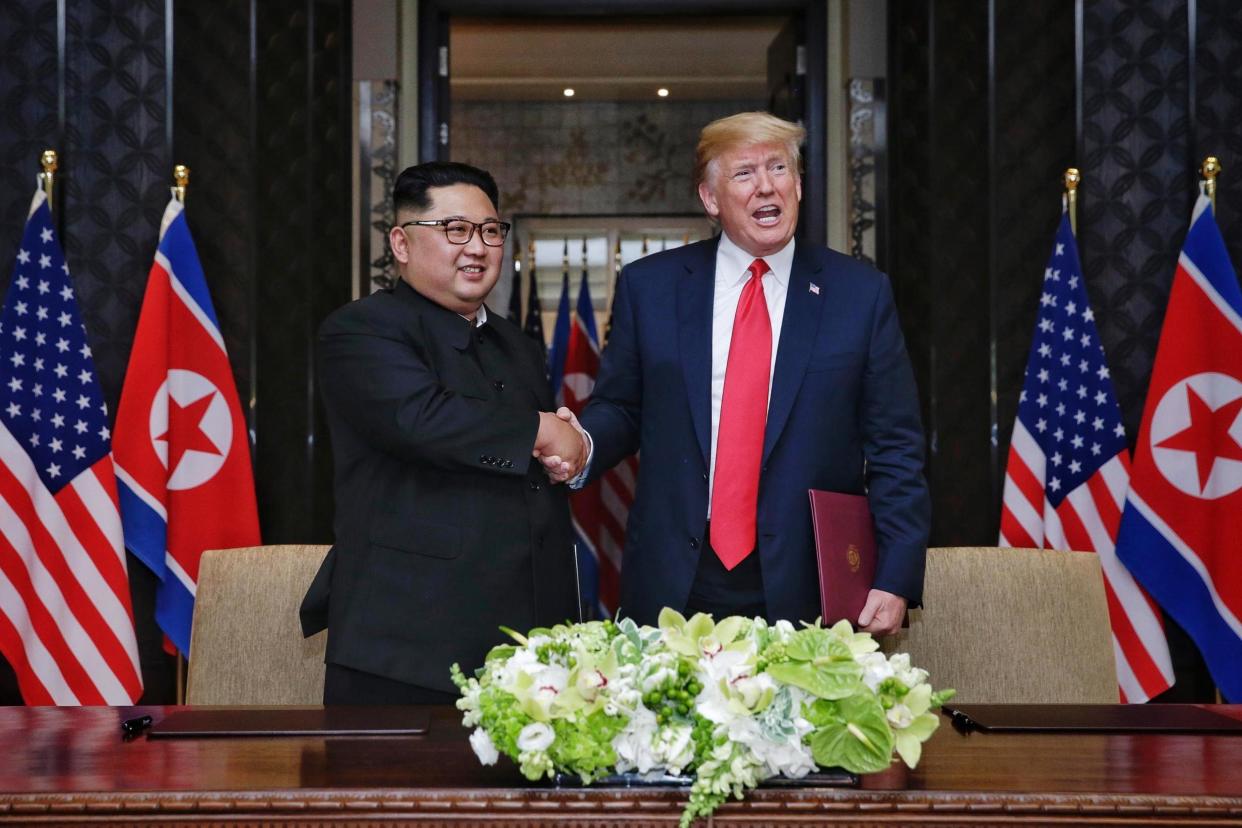North Korea to return remains of 200 US soldiers lost in Korean War

The Trump administration is expecting North Korea to return up to 200 sets of remains of soldiers who died during the Korean War, officials say.
US officials confirmed that plans to receive the remains were in motion but said that the exact date when they will be transferred is not yet decided.
CNN reported that the Trump administration said it would be ready to receive the remains as early as next week.
President Donald Trump said North Korea’s agreement to return the remains was an example of one of the successes to come out of the historic summit with Kim Jong-un in Singapore.
During a press conference following the summit last week, Mr Trump said: “I asked for it today. And we got it…The remains will be coming back. They’re going to start that process immediately.”
According to the Defense POW/MIA Accounting Agency an estimated 7,697 Americans were unaccounted for after the Korean War.
It is believed up to 5,300 remains are located in North Korea.
"On several occasions in the past, Democratic People's Republic of Korea (DPRK) officials have indicated they possess as many as 200 sets of remains they had recovered over the years," a DPAA spokesman said.
“The commitment established within the Joint Statement between President Trump and Chairman Kim would repatriate these as was done in the early 1990s and would reinforce the humanitarian aspects of this mission."
The DPAA said between 1990 and 1994, the US recovered 400 remains in North Korea.
From 1996 to 2005, a further 229 caskets containing remains were recovered.
Of the remains transferred to the US, those that can be identified will be returned to the deceased family members.
Remains which cannot be identified will be kept at the National Memorial Cemetery of the Pacific and the DPAA's Laboratory in Hawaii.

 Yahoo News
Yahoo News 
